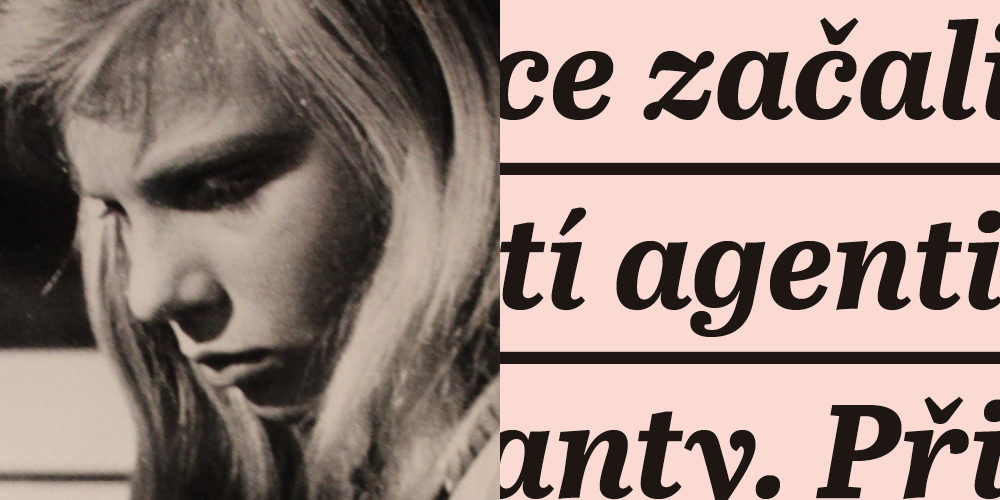Her father Vyacheslav Irmanov came from an old Russian noble family and lived in Prague since 1937. In May 1945, he was arrested by agents of the Soviet counter-intelligence special unit SMERSH (Death to Spies), who were taking hundreds of Russian emigrants to Soviet gulags during the inaction of the Czechoslovak authorities. He was saved by the courage of Kateřina’s mother.
“She told them that he had left her and had fled to Paris. She began to wail terribly and they were so surprised that they left. But there was a moment of terrible fear.”
Vyacheslav Irmanov, a sculptor, musician, and occasional actor, then hid for several months with the singer Arnošt Kafka. “He was a brave man, because hiding my father was very dangerous.” After a while, the family was able to be together again, and in 1947, Kateřina was born. In early 1948, her parents sent her to her Russian grandmother, who was living in exile in Helsinki. In the meantime, however, the communists had taken power in Czechoslovakia and little Kateřina’s return was complicated. She returned to her parents after three years. Only Russian was spoken at her grandmother’s house and it took her some time to pick up Czech in Prague.
At the age of twelve, she starred in the film Holubice (Doves) directed by František Vláčil. Despite a problematic personal profile, she graduated from high school and in 1967 began studying psychology. After the August occupation, she studied in Switzerland, but eventually rejected the possibility of emigration. “It was then that I realized that I cared very much about Czechoslovakia, which was in danger at the time,” says Kateřina Irmanovová.
Surveillance
After February 1948, the communists, following the Soviet model, eliminated civil liberties. They stole from everyone who owned land or other property. They imprisoned thousands of people in labor camps, where many mined uranium ore for the Soviet Union in inhumane conditions. Hundreds of those who were inconvenient were murdered or sentenced to death and executed by the communists (Píka, Horáková, Broj, Slánský, and others). They isolated the country from the free world and introduced censorship. Not everyone surrendered. Brave people founded resistance groups and smuggled refugees across the border. They resisted the incipient totalitarianism with words and deeds.
But it did not start on 25 February 1948. The Communist Party, strengthened by the authority of the Soviet Union with the halo of the “liberator from Nazism,” had already become a political hegemony, as it confirmed by winning the semi-free elections in 1946. The comrades were lying then when they assured voters that they would not go the Soviet way, that “there will be no collective farms in our country.” After the February coup they declared that “the will of the ruling class is above the law.” And this will of the workers was “represented” by the Communist Party. For forty long years the country submitted to the will of the leaders of the Soviet Union. The Communist Party was subject to directives from Moscow on fundamental issues. Soviet advisers oversaw the course of fabricated show trials. However, none of this removes the main responsibility from the domestic actors for the widespread crimes that characterized the domestic totalitarian system.



